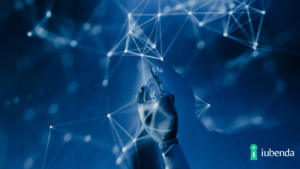This is a commonly discussed concern and now, in response to worries that EU law does not adequately safeguard the creative industries from quickly advancing generative AI technologies like ChatGPT, artist organizations are preparing themselves.

AI Art
Recent months have seen a rise of concern among individuals involved in the arts due to the acceleration of generative AI technologies that can create textual or visual works of material that are sometimes controversially referred to as “AI Art.”
Massive amounts of data must be scraped from already-existing web resources for these tools. However, creators whose work has been incorporated into technology are sounding the alarm about the consequences of this practice for copyright and the possible harm it could cause to their industries.
Concerns about copyright
In the EU, the Copyright Directive has been in effect since 2019, however is the situation is different now?
The AI generation of content and its impact on copyright law is a topic that is currently being widely discussed and debated by legal experts and the tech community. AI-generated content raises various legal questions, such as who owns the copyright, what constitutes originality, and how fair use laws apply.
The fast pace of technological advancements in the field of AI requires that copyright laws be updated and interpreted to address these new challenges. However, the ultimate impact of AI on copyright law is still uncertain, and it will take time for the legal system to fully address these issues.
AI upcoming laws: The AI Act
The AI Act refers to legislation that governs the use and development of artificial intelligence. AI is governed by a variety of existing laws, such as data protection, consumer protection, and intellectual property laws. Currently, there is no specific AI Act in place.
However, it is now being discussed by EU politicians. Adaptable AI systems like ChatGPT that may be used for a variety of applications were not included in the draft law’s original version.
Artist associations are organizing to have a portion of the Act devoted to the creative arts, with safeguards demanding clear informed consent from the rights holders before any use of their work.
What does AI think?
We thought we’d add the other side to the argument and ask ChatGPT itself what it thought on the matter:
AI has the potential to enhance creative industries by automating repetitive tasks and freeing up time for more creative endeavors. However, it is unlikely that AI will completely replace human creativity, as it still lacks the emotional and cultural understanding that is central to many forms of creativity. Additionally, there will always be a need for human creativity in areas such as original content creation, innovation, and artistic expression.
